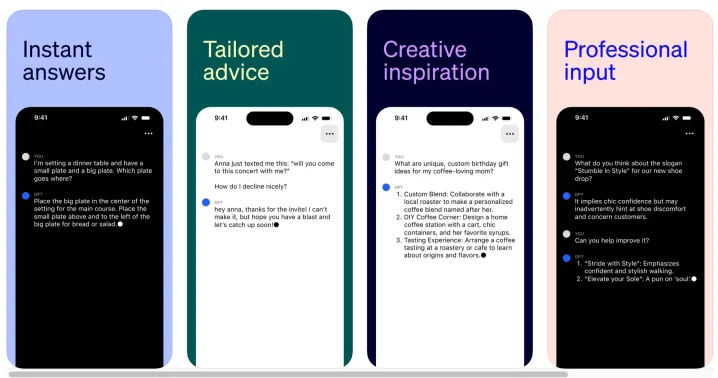
OpenAI has just launched a free ChatGPT app for iOS, giving iPhone and iPad owners an easy way to take the AI-powered tool for a spin.
The new app, which is able to converse in a remarkably human-like way, is available now in the U.S. App Store and will come to additional countries “in the coming weeks,” OpenAI said. Android users are promised their own ChatGPT app “soon.”
In a post on its website introducing the ad-free ChatGPT mobile app for iPhone, OpenAI outlined some of the tasks that you might want to use it for. They include:
— Instant answers: Get precise information without sifting through ads or multiple results.
— Tailored advice: Seek guidance on cooking, travel plans, or crafting thoughtful messages.
— Creative inspiration: Generate gift ideas, outline presentations, or write the perfect poem.
— Professional input: Boost productivity with idea feedback, note summarization, and technical topic assistance.
— Learning opportunities: Explore new languages, modern history, and more at your own pace.
The ChatGPT app also integrates Whisper, OpenAI’s open-source speech-recognition system for voice input. Subscribers to ChatGPT Plus will get early access to new features, faster response times in the app, and exclusive access to GPT-4 — a model more advanced than GPT-3.5, which powers ChatGPT.
“With the ChatGPT app for iOS, we’re taking another step towards our mission by transforming state-of-the-art research into useful tools that empower people, while continuously making them more accessible,” OpenAI said.
It could be that with Apple’s Siri digital assistant lacking the same kind of impressive AI smarts displayed by ChatGPT, some iPhone users will find themselves conversing more with OpenAI’s offering for virtual chats and inquiries.
Following its release in November, ChatGPT quickly went viral, with its success turbocharging AI development by other tech giants such as Google and Meta, though numerous startups are also entering the sector.
It’s also stirred heated debate about the extent to which similarly powerful generative AI technology will go on to impact industries and wider society, complementing jobs while replacing many others. Some AI experts, including the so-called “godfather of AI” Geoffrey Hinton, have said that while the technology offers many potential benefits, urgent regulation is needed to reduce the chances of it being used for nefarious purposes. Hinton even expressed fears that the technology could one day become too powerful and destroy humanity itself. OpenAI’s CEO, Sam Altman, also warned recently that we may not be that far from “potentially scary” AI and said that regulating it is “critical.”
In a bid to keep up with the fast-evolving technology, lawmakers in the U.S. and beyond are currently looking at how to regulate the technology.
Editors' Recommendations
- This one image breaks ChatGPT each and every time
- Google Gemini vs. GPT-4: Which is the best AI?
- This is Pi — one of the most amazing Android apps I used in 2023
- Apple’s iPhone design chief jumps ship to work with Jony Ive
- Here’s why people are claiming GPT-4 just got way better



